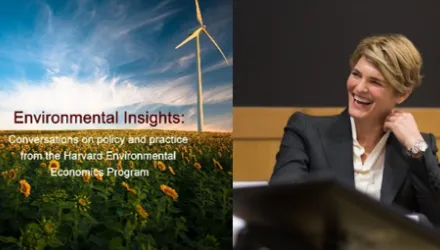First Principles: Arguing the Economy
To read the other essays in the First Principles: Arguing the Economy symposium, click here.
There are many things progressives need to do in the long term to win the economic argument against conservatives. But what about the short term? What about right now? The battle of ideas plays out over years. In the meantime, our side needs some wins. It can score some—even in the current climate—provided we stop thinking in grandiose terms.
When it comes to public policy, small is beautiful. This goes against the grain of current thinking and practice in left-of-center politics. Among Democrats, the recent fashion has been to draft mammoth, "comprehensive" bills—bills that routinely run into the thousands of pages and that attempt to solve every problem known to mankind. This trend puts progressive politicians in direct conflict with the public they seek to serve. For the two most important things to know about the American public of the past few decades are: they distrust government, especially the federal government; and conservatives outnumber liberals by two-to-one.
Mammoth, "comprehensive" change is so murky and fraught with uncertainty that the public is predisposed to turn against it. It's difficult for a member of Congress to walk into a town-hall meeting and persuade people that there really aren't death panels in the health-care bill while brandishing a 1,000-page monstrosity in front of skeptical voters. Complexity breeds suspicion in a country where 40 percent of the population is ideologically opposed to government, and 70 to 80 percent at any given time in recent history don't trust it.
In a nation where distrust of government is stubbornly and persistently high, the only way for progressives to achieve the kind of change that we believe is in the public interest is to enact it in incremental steps, so that the public can understand and appreciate the change. So in the spirit of a new progressive incrementalism, here are three battles that progressives should fight in the next Congress to put our fiscal and economic house in order: create jobs by cutting the payroll tax and replacing the revenue lost with a carbon tax; bring the Social Security trust fund closer to balance by changing the formula for Social Security benefits so that, in the future, well-off people will get somewhat smaller benefits than under the current formula; and reduce the deficit by creating a tax expenditure budget....
Continue reading: http://www.democracyjournal.org/20/three-fights-we-can-win.php
Kamarck, Elaine. “Three Fights We Can Win.” Democracy: A Journal of Ideas, Spring 2011
The full text of this publication is available via Democracy: A Journal of Ideas.





